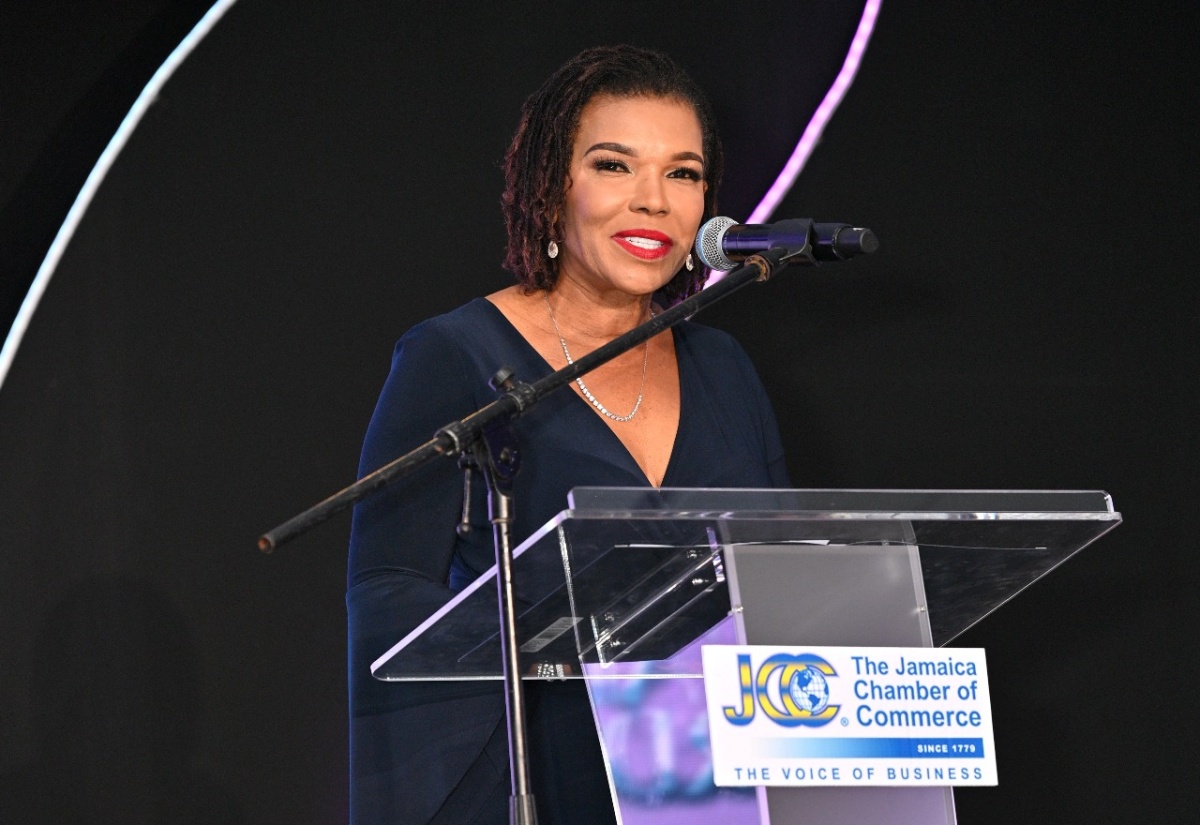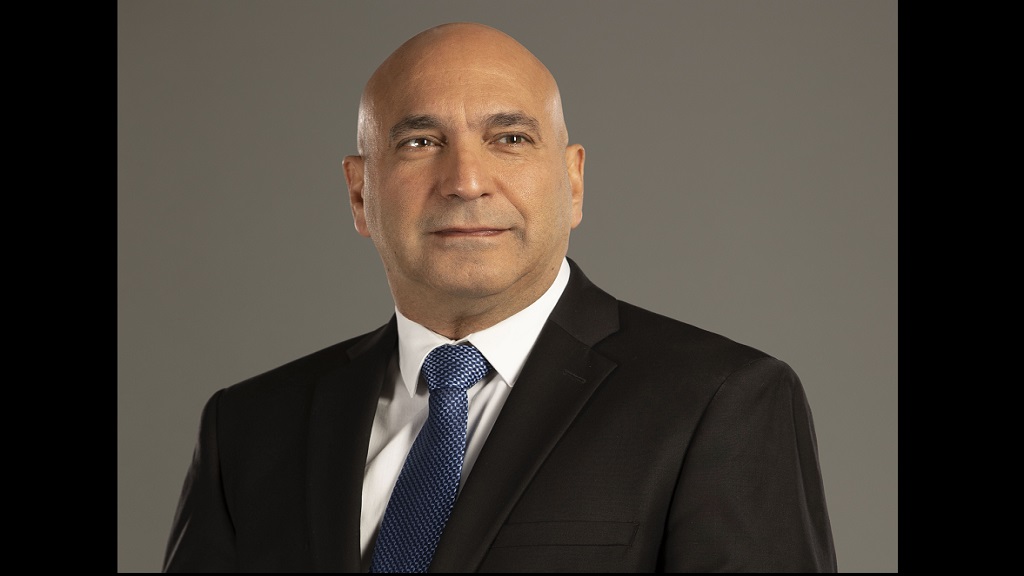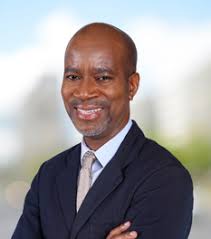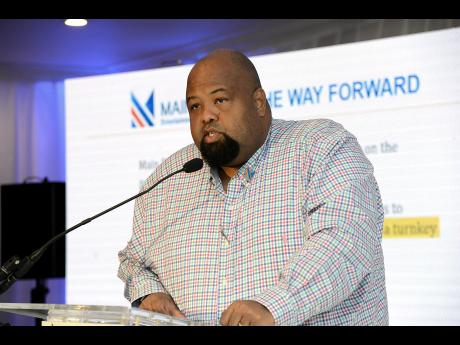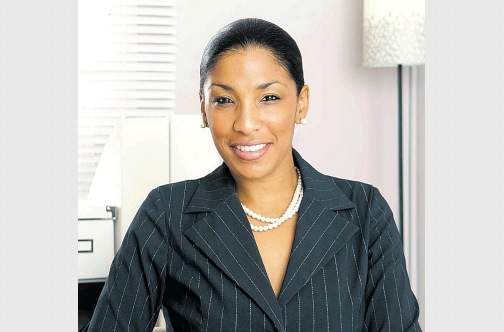The rise and fall of Olint, Cash Plus, and the two men who ran these companies is by far the biggest story of 2008. Their activities impacted many in Jamaica, and as far north as the UK, USA, Canada and south to Trinidad and environs. These two men, David Smith and Carlos Hill changed and rocked the Jamaican financial landscape in 2008. They are both credited as the founders and architects of the alternative investment schemes that sucked in so much money, that it has left countless thousands still wondering where it all went and will they ever get their money back. One thing is for sure, high interest rate returns will have a very different meaning from now on.
The year started with Jitters over alternative investment schemes spreading to World Wise another recently started scheme. Jitters over the uncertainty of alternative investment schemes, following a ‘cease and desist’ order against Cash Plus spread to forex exchange trading entity World Wise Partners.
A few days later the Government finally decided to step in with the Attorney General and financial officials meeting on alternative investment schemes. An urgent meeting was convened between Attorney General Dorothy Lightbourne, officials of the Finance Ministry and Financial Services Commission (FSC), to make recommendations and guidelines to address the growing concerns over unregistered investment clubs. The instruction was given by Prime Minister Bruce Golding during a meeting with Finance Minister Audley Shaw’; minister without portfolio in the ministry, Don Wheby; FSC officials and representatives of the banking sector.
Golding said the number one priority was to protect the integrity of the country’s financial system and establish the requisite legislative framework for dealing with other investment schemes that may develop in the future.
In April, it is announced that Cash Plus is in turmoil with the Investment club in receivership. The five-year-old investment club Cash Plus Limited, which has been engaged in a number of legal battles over the past 12 months, is in receivership. Kevin Bandoian, a chartered accountant employed to Price-Waterhouse Coopers in the United States, was appointed joint receiver-manager. Later that month, every investors worst fear is realised when the police following investigations announce that Cash Plus has no money here to repay, cop tells court. Supporters of Carlos Hill, the CEO of Cash Plus, the collapsed alternative investment scheme, protest and demand his release from police custody outside the Half-Way-Tree Courthouse where Hill, his brother Bertram and Cash Plus’ chief financial officer Peter Wilson appeared. Head of the Organised Crime Investigation Division (OCID) Fitz Bailey revealed in court that Cash Plus has no money in Jamaica to repay its investors. “Based on what we have investigated there is no money, we have not identified any money in Jamaica to repay investors,” Bailey said. “In addition, a number of companies and assets said to be owned by Cash Plus turned out to be false.”
Early May and the Cash Plus boss is out on bail but cannot leave home between 6:00 pm and 8:00 am. Carlos Hill, head of the failed informal investment scheme, Cash Plus, and his brother, Bertram Hill, were granted bail in the Supreme Court, but with stringent conditions. Hill, who got bail in the sum of $15 million, was ordered to report daily to the Fraud Squad and slapped with a curfew order that requires him to be at his Norbrook, St Andrew home between the hours of 6:00 pm and 8:00 am. His brother, who the police said is a Cash Plus director, was offered $10-million bail, with similar conditions set by Justice Bertram Morrison. Bertram Hill will have to remain at his brother’s house as he resides in the United States. Both men were ordered to surrender their travel documents.
Next, it was Olint, considered by many to be the safest of them all. The May 16, 2008 headline reads Olint at the crossroads. The alternative investment scheme Olint Corp headed by David Smith now finds itself at a crossroads, with its next move determining the very existence of the popular foreign currency trading outfit. For the better part of the year, it has been unable to honour all its payout commitments, with many of its members exhibiting steadfast forbearance while the club’s founder attempts to put things right.
At the same time, Olint is fighting a court case against NCB and reports are that in the United States, banking house Wachovia is conducting a protracted due diligence report, thus making it impossible for Olint to provide timely payments to its members. To compound matters further, the Financial Services Commission (FSC) continues to call for Olint to register and publish audited financial statements.
“If David (Smith) does pay out everybody what he should rightfully pay them, then there will be a huge sigh of relief right across Jamaica. He would be regarded as a hero and his reputation will be enhanced both professionally and personally. If he does not, he will be stigmatised as a charlatan and rendered a pariah. His fate lies in his own hands. His word, dare I say it, has to be his bond.”
By June 18th, the full impact of the fallout begins to seep out with the announcement by Realtors that Fallout in ‘investment schemes’ impacting housing demand. Realtors expect slower growth in the housing market in 2008, with the fallout of get-rich schemes, high oil and commodity prices. Cash Plus, Olint and Worldwise, the three popular get-rich schemes, have suspended payments to its members since early this year. With the fallout, Valerie Levy expects housing demand to slide by about 10 per cent. “This as potential homeowners no longer have the cash flow and cannot qualify for mortgages,” said Levy who heads Valerie Levy and Associates. She added that if the schemes are to reorganise, then it will again fuel the market. Prices are expected to fall but rather rise as supply continues to lag behind demand. Real estate experts say a portion of new mortgages would have come from the get-rich schemes encasements.
The local currently is not immune to all this and so the Jamaican dollar gathers downhill momentum. The Jamaican dollar brakes through the $72 mark and continues to slide, notwithstanding strong interventions and an interest-rate hike by the central bank. The currency closed on the spot market at $72.19 against the US dollar, a new record low, having hit $72.06 following a more than six cent decline. The Bank of Jamaica, signalling a positive outlook, said that the most recent movement in the exchange rate is related to payments due to overseas creditors. “This occurred at a time when local banks and other financial institutions have been reducing their exposure to credit lines offered by correspondent banks and investment houses,” said the central bank.
In mid July, one of the much talked about Cash Plus acquisitions is back with the owners who are eager to offload the loss maker. Mainland puts flagship store on the market. Jeffrey Myrie, one of the owners of Mainland International Limited, is looking for buyers for the Hardware Company’s ‘Super Home Centre’ store which sits on the periphery of Spanish Town in St Catherine. Mainland wants at least US$6 million for the property that it spent more than US$14 million building six years ago. The 87,000-square-foot store sits on 4.079 acres of land. “It’s a store that was not profitable,” said Myrie. Myrie’s insistence that Mainland would continue operating as a going concern follows a failed attempt to sell the hardware outfit to Cash Plus Limited, a company now in receivership.
Despite all the warnings and signs of grave and immediate danger there are those who see Few dangers from Olint’s slide. With no precise figure available for the funds, Olint and its various subsidiaries have under management; analyst says it is hard to predict the full impact of the corralling of the foreign exchange trader’s assets on the local economy. But there appears to be a fair bit of consensus that the immediate effect would be consumer spending, in much the same as the Cash Plus effect. Olint, considered the forerunner of the unregulated investment schemes, is as secretive about its dealings as the other 40 or so operations that regulators have detected over time. But ‘guestimates’ have centred on US$600 million (J$43 billion) of principal, and possibly US$2 billion (J$144 billion) when interest payables are added to the mix. Jamaican think tank, CaPRI, which estimated the total amount of invested funds in the schemes at J$100 billion to J$200 billion, said Wednesday that it had no individual breakout of the figures.
The media attention quickly shifts from Carlos Hill to David Smith as the Olint boss readies team for legal showdown. A high-calibre team of Jamaican and international lawyers flew to the Turks and Caicos Islands to assist Olint Corporation Ltd boss, David Smith, in preparing for a looming legal battle.
Meanwhile, in Providenciales, Turks and Caicos, few people in the British territory know the investment club or Smith. In fact, a commission of inquiry ordered by the British government into alleged government corruption in the islands is the biggest news here. Smith’s house and his offices were raided by members of the Royal Turks and Caicos Islands Police Force, who seized documents and computers. But Detective Assistant Superintendent Mark Knighton, who led the operation, said his team from the Financial Crime Unit has found nothing incriminating to date. “Our next move is to examine the contents of these documents and see what they reveal,” Knighton said. “I would say that this investigation will take months, rather than weeks because, to my knowledge, this is just a small number of the documents.”
Finally, the reality of what is about to come and for many already here is upon us. The billion dollar question now is What happened to all that money? Club members of popular foreign currency trading outfit Olint and indeed most of the country are preoccupied with two questions: Will people be able to recover their invested funds and what happened to all that money? The answer to both those questions resides with Olint’s main principal, David Smith.
Olint was expected to make a significant payout, a deadline that came and went, with no good news for its club members, many of whom have not received a payment since the beginning of the year. Earlier that month, Smith, speaking to journalist Cliff Hughes, said that Jamaicans should pray for Olint and keep their fingers crossed that the money arrives in Jamaica. Alas, divine intervention did not materialise. Many club members expressed concern, and by Monday of that week, a foreboding picture was painted when its Braemar Avenue office was closed and an e-mail was released to all club members, part of which read: “It is with some regret that we advise, that as a result of threats to staff members, including a bomb threat within the last few days which is being taken seriously, the Club Member Care Office will be closed to the public as of Monday, July 14, 2008. Efforts are being made to address the matter and we will advise you further.”
Dennis Chung staring in his crystal ball sees the future and predicts A perfect economic storm. The next six to nine months he says will be one of the most challenging periods in the economic history of independent Jamaica. “And I say independent Jamaica merely because I am not aware of what the economic circumstances were before. In fact, what is brewing, I would call a perfect economic storm. I say this not just because bad management of the economy over the years is finally coming home to roost, but also because the vicious global environment will play havoc on vulnerable economies such as ours. The reason for our vulnerability is because we have allowed ourselves to be destroyed by the demons of consumerism, corruption, crime, and politics rather than economic decisions. In fact, the infrastructure that would make our economy able to weather the current global shocks does not exist, because we have failed to educate our people and insist on productivity.”
To provide some clarity to what is happening, the BUSINESSUITE Magazine publishes a feature entitled What Exactly is a Ponzi scheme? A Ponzi scheme is a fraudulent investment operation that involves promising or paying abnormally high returns (“profits”) to investors out of the money paid in by subsequent investors, rather than from net revenues generated by any real business. It is named after Charles Ponzi. A Ponzi scheme usually offers abnormally high short-term returns in order to entice new investors. The high returns that a Ponzi scheme advertises (and pays) require an ever-increasing flow of money from investors in order to keep the scheme going.
The system is doomed to collapse because there are little or no underlying earnings from the money received by the promoter. However, the scheme is often interrupted by legal authorities before it collapses, because a Ponzi scheme is suspected and/or because the promoter is selling unregistered securities. As more investors become involved, the likelihood of the scheme coming to the attention of authorities increases.
In August members of the financial sector begin to brace for what must now come. NCB leads the way and is positioning for investment schemes fallout. National Commercial Bank of Jamaica’s (NCB) move to increase its provision for credit losses by 140 per cent over the 12 months to June 30 have led some investors to believe the commercial bank is preparing itself for the potential impact of the fall-out of investment schemes. “It would be prudent [to increase the provision] in order to make sure there are no surprises,” said Neilson Rose equity asset manager at Mayberry Investments. “You are definitely going to see some fallout and these alternative investment schemes were used as cash flow.” The provision jumped from $39.1 million to $93.1 million when the June quarter is compared year over year. Year to date that figure increased 102 per cent from $151.3 million to $307 million. NCB increased this provision even though there was a decrease in its non-performing loans as a percentage of total loans-dropping to 2.34 per cent from 2.92 per cent over 12 months.
Some are already impacted as VMBS announces that Unregulated schemes hurt them in ’07. With its deposit portfolio remaining flat last year, Jamaica’s second largest mortgage bank, Victoria Mutual Building Society (VMBS), says that its ability to attract savings was weakened by the raft of unregulated schemes that offered super returns to investors. The explanation for the weak performance in this segment of the society’s business was outlined in its recently released annual report and underlined by the bank’s chairman Roy Hutchinson and CEO Richard Powell when they addressed members at the annual general meeting.
In September, it gets worse as Bad debts grow and Gov’t continue to gauge effect of fall-out. Analysts aren’t able to peg how much the fall out of ‘get-rich schemes’ has fed into the alarming increase in the number of Jamaicans that are not servicing their loans and mortgages. What’s clear, however, is that the pace at which bad debts held by domestic financial institutions have grown over the last year is the highest it has been since the 1990s financial crisis.
Bank of Jamaica (BOJ) data released, showed that up to June 2008, $7.4 billion in non-performing loans (NPL) – loans in arrears for three months and over – was in the system, an amount equal to the capital budget for education and agriculture combined. It’s up 41 per cent over last year, even as loans grew by half that amount. “This may not be the peak of it,” said financial analyst John Jackson, who closely follows publicly listed companies. “It is something that has to be watched carefully.”
Entering the last quarter of the year Jamaican remittances weather downturn, for now – Cocking cites family loyalty. The Inter-American Development Bank warned that the pace at which remittances once flowed will slow down even more than it originally projected, due to the erosion of the dollar’s value, a spike in inflation and the financial meltdown in the United States.
But at least two remittance companies in Jamaica say for now money transfers from the United States are still strong despite the financial crisis there. “We have not seen any fallout at all, none. It is same as usual,” said Andrew Cocking, deputy group president and head of international business at the Capital and Credit Financial Group, whose money transfer operation is handled by subsidiary Capital and Credit Remittance Limited.
The banking community begins to officially speak out led by a prominent Banker who ties fallout of ‘get rich’ schemes to rising loan delinquency. While there is no empirical data to highlight the number of borrowers that have been directly compromised from the fallout in the alternative investment schemes, a sharp spike in the amount of delinquencies on loans in recent months has raised a few eyebrows in the commercial banking sector.
Scotiabank President and CEO Bill Clarke, at a Financial Services Commission investment luncheon said that there are indications that a lot of persons were affected by the collapse in the high-return “get-rich” schemes, and he suspects that an increase in the number of persons who are unable to service their loans with his institution may be related to the fallout. “In our retail banking business, we have found that over the last couple of months that there has been an escalation in delinquencies,” said Clarke. “But when we enquire as to why arrangements are not being made as originally agreed, the answer that we have been getting is ‘our revenue stream is so much impaired’.”
October and attention is shifted away from the failed investment schemes to the Global financial meltdown. Prime Minister Bruce Golding admits that the global financial crisis will affect some of Jamaica’s critical economic structures, despite Finance Minister Shaw’s earlier claims that the country would face minimal impact. However, he is steering away from instigating panic.
Finally, the reality begins to sink in and a Crisis team is put in place. Giving the clearest indication yet that Jamaica is facing fallouts from the financial crisis that has gone global, the Government is putting together a top-level team to monitor the domestic financial system, and take action as needed to steady the markets here. “There is a lot of work being done in terms of managing the crisis in Jamaica,” said Don Wehby, minister without portfolio in the Ministry of Finance and the Public Service. “We had a long meeting with all the stakeholders to determine how we are going to approach this crisis,” he said, “because it is a crisis that calls for leadership.”
Alternative investment schemes and their impact on the economy are missing from the headlines, taken over by the global economic crisis.
In late November the headline is that Latibeaudiere avoids ‘R’ word. The Bank of Jamaica said that output was likely to be flat in the December quarter, but Central Bank Governor Derick Latibeaudiere steadfastly avoided the word recession even though the economy contracted 0.3 per cent during the nine months between January to September. A recession is classically defined as two consecutive quarters of negative growth.
Confession comes in early December when is announced that Jamaica has been in a recession since the start of ’08. The Jamaican economy has been in a recession since March of this year according to official data published by the Statistical Institute of Jamaica (Statin). The data showed that realhttp://businessuite.blogspot.com/ gross domestic product (GDP) by quarter has declined year over year since the December 2007 quarter. Statin, which revised its GDP data to rebase its numbers from 1996 to 2003 and which began using, this year, the value-added approach to calculate economic activity, reported a 0.4 per cent decline in value-added during the December quarter of 2007 when compared to the corresponding quarter in 2006.
The year has closed and the alternative investment schemes, their principals, investors and the overall impact on the economy are no longer it would appear current and newsworthy.
Additional sources: Daily Observer, Daily Gleaner, and Internet sources

 Businessuite Markets2 weeks ago
Businessuite Markets2 weeks ago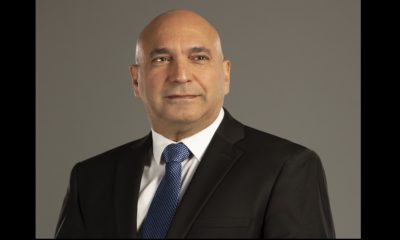
 Businessuite News244 weeks ago
Businessuite News244 weeks ago
 Businessuite Markets4 weeks ago
Businessuite Markets4 weeks ago
 Logistics & Transportation4 weeks ago
Logistics & Transportation4 weeks ago
 Businessuite Markets4 weeks ago
Businessuite Markets4 weeks ago
 Leadership Conversations3 weeks ago
Leadership Conversations3 weeks ago
 Businessuite Markets4 weeks ago
Businessuite Markets4 weeks ago
 Businessuite News244 weeks ago
Businessuite News244 weeks ago




